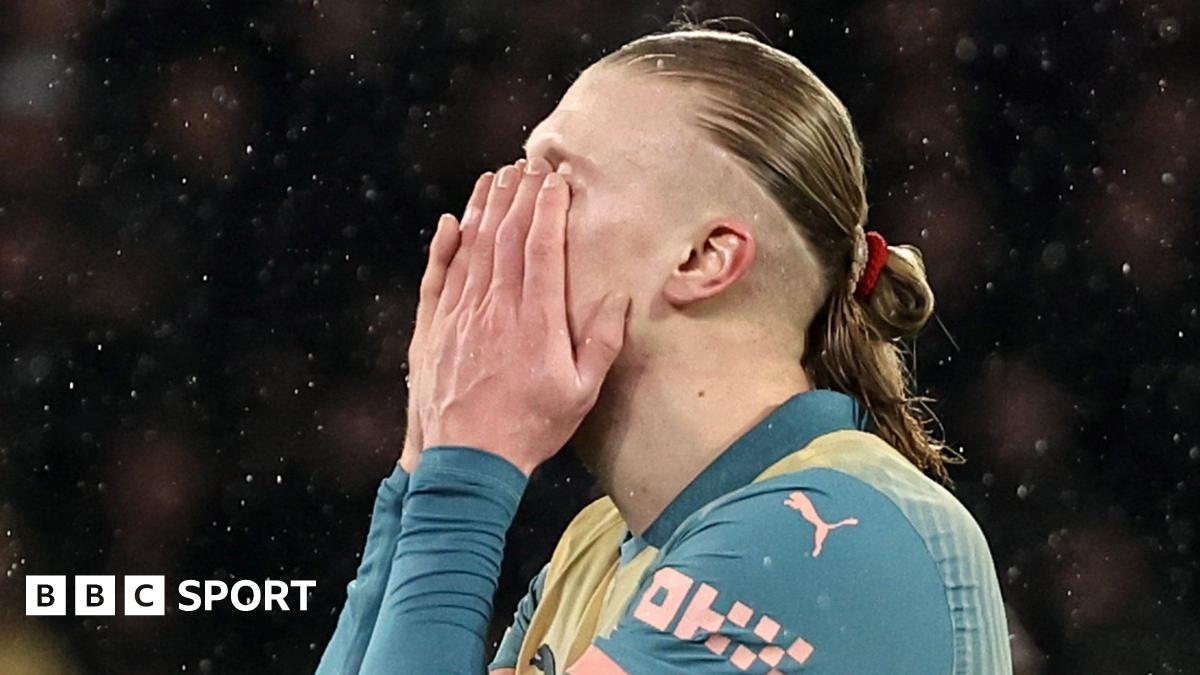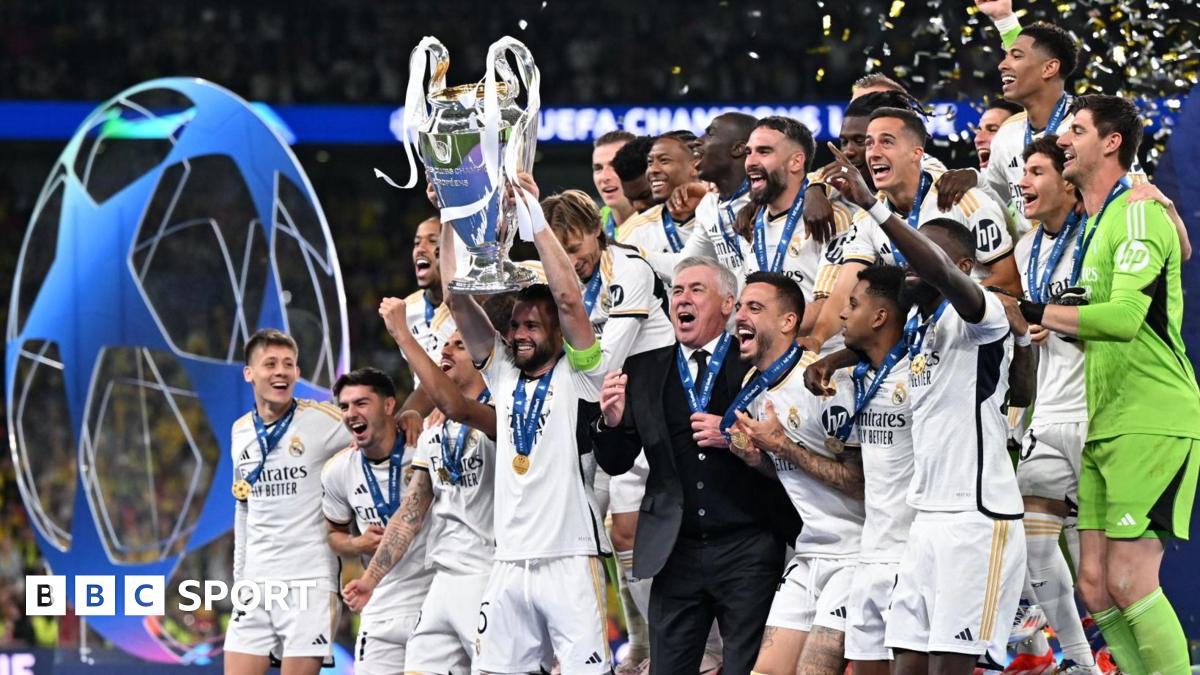ARTICLE AD BOX
The secretary general of the 2022 Qatar World Cup says criticism by players and managers has been "ill-informed" and the nation "should not be apologetic" about hosting the tournament.
Qatar has been heavily criticised over the country's human rights record.
There are strict anti-LGBTIQ+ laws in Qatar, while there are also concerns over the treatment of migrant workers.
"Some people have made statements that in my opinion were ill-informed," Hassan Al-Thawadi told BBC Sport.
Speaking to BBC sports editor Dan Roan, Al-Thawadi added: "We should not be apologetic over our ambitions to host this tournament because we are football loving region.
"We are football crazy and football mad like anywhere else. We have the legitimate ambition to showcase our region to the rest of the world and to change people's perception of who we are."
- Fifa World Cup Qatar 2022: Key questions answered
- How has Qatar treated stadium workers?
- All you need to know about the World Cup draw
Homosexuality is illegal in Qatar and human rights organisation Amnesty International say women and LGBTIQ+ people "continue to face discrimination in law and practice".
LGBTIQ+ (lesbian, gay, bisexual, trans, intersex, queer or questioning) groups engaging with Fifa over the 2022 World Cup say "issues of concern" remain and reassurances over the safety of LGBTIQ+ people in the Gulf nation "have not been adequate".
England manager Gareth Southgate has said it would be "a great shame" that some fans will feel they cannot attend the World Cup because of concerns over their safety, while captain Harry Kane said he wants to "shine a light" on the issues surrounding the Qatar tournament.
Netherlands manager Louis van Gaal has suggested holding the event in the Middle Eastern country was about "money" and "commercial interests".
On how Qatar's laws can be reconciled with football's focus on inclusivity and anti-discrimination, Al-Thawadi said: "We have always said everybody is welcome. What we will ensure is everybody will be safe. Everybody will feel secure.
"[We are] inviting the world to come to visit Qatar, to visit the Arab world, and to understand again, for us, we're a relatively conservative country, which means public display of affection is something that is not within our culture.
"But hospitality and welcoming people from different parts of the world into our country is part of our culture."
He added: "We've done this over the last few years and we have people from different walks of life who have made a home for themselves in Qatar. I think the nature of these tournaments is it allows people from different walks of life to be able to experience and understand different cultures."
- England boss Southgate unsure what World Cup boycott would achieve
- Ex-England captain David Beckham urged to speak out on Qatar World Cup 2022
Amnesty International, who have claimed migrant workers are being exploited in Qatar, have called on England's players, staff and fans to highlight human rights concerns in the run-up to the World Cup, which begins on 21 November.
A report in the Guardian in February 2021 said 6,500 migrant workers have died in the country since the World Cup was awarded in 2010.
Qatar 2022 dispute these figures but have not commented publicly on them, while the Qatar government said in a statement: "The mortality rate among these communities is within the expected range for the size and demographics of the population."
Asked if the 2022 tournament was sportswashing, Al-Thawadi said "that could not be further from the truth".
"If you look at the progress that's been made over the last 12 years, I think that in itself does away with the concept of sportswashing because actual progress has been made on the ground in relation to that," Al-Thawadi said.
"There's always more work to be done. Just like there's more work to be done in England, just like there's more work to be done throughout the rest [of the world]. I don't think any country today in the world can claim that they have the ideal system in place.
"Always progress needs to be made. We acknowledge that progress needs to be made but what we asked was also to acknowledge the work that's been done."
Qatar says that between 2014 and 2020 there were 37 deaths among labourers building World Cup stadiums - of which 34 were "non-work related".
Eight new stadiums have been built for the World Cup in Qatar, including the 80,000-capacity Lusail Stadium, which is the biggest venue at the tournament and will host the final.
In 2016, Amnesty International accused Qatar of using forced labour, and since 2017 the government has introduced measures to protect migrant labourers from working in excessive heat, limit their working hours and improve conditions in workers' camps.
In a statement, player representative organisation Fifpro said "workers continue to be subjected to abusive practices" and that "unscrupulous employers" are "not being held to account".
"Workers in the most vulnerable positions from countries such as India, Bangladesh, Nepal, the Philippines, Pakistan and some African countries still fear retaliation if they denounce exploitation, unpaid wages and long working hours," Fifpro said.
"In football terms, it is not even half-time. And each achievement gained for workers remains fragile. Among migrants in Qatar there is widespread fear that when the spotlight on Qatar dims after the World Cup the improvements achieved will peter out."
On the subject of migrant deaths, Al-Thawadi said: "No matter what you do, nothing is going to compensate the loss of life.
"But we've tried our best to be able to provide the relevant compensation for the families.
"What we have done is investigated every death, tried to find the root cause and ensure that these tragedies do not occur, and tried to take steps towards preventing any such tragedies from occurring."
At Thursday's Fifa Congress meeting in Qatar Norway's Football Federation president, Lise Klaveness said the World Cup had been awarded by Fifa "in unacceptable ways with unacceptable consequences".
"Human rights, equality, democracy, the core interests of football, were not in the starting 11 until many years later," she said.
Klaveness said that last year Norway had debated a boycott of the World Cup, but instead voted for dialogue and pressure through Fifa as the best way to make necessary changes.

- Ask Martin Lewis Podcast: How is the government planning to tackle online scam ads?
- What is bottoming in F1? Start from a pole position with some essential jargon explanation


 2 years ago
26
2 years ago
26








 English (US) ·
English (US) ·